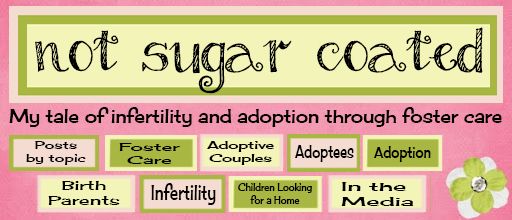If you and your spouse have been unable to get pregnant, it can be one of the most significant and painful struggles you will endure. Many doctors say that infertility is almost as stressful as having a cancer diagnosis, because of the often randomness of it, as well as the loss of feeling in control of your situation.
While many may choose to pursue treatment options in order to become pregnant, or may decide to pursue adoption, it is very helpful and important to deal with the feelings surrounding infertility before making these important decisions.
- Find a good doctor. First, find out if you are really dealing with infertility. Typically, doctors suggest that if you are under age 35 and have been unable to conceive for twelve (12) months or longer, you may be dealing with infertility. The same goes for women over age 35, who have unable to conceive for over six (6) months. If you fall in this category, find a good doctor who will listen to what you want and respect your personal and spiritual beliefs. You doctor will likely suggest some early testing of you and your partner to determine if you are actually dealing with infertility.Even if you have been able to conceive previously, but fall into the above description, you should talk to you doctor about the possibility of 'secondary infertility,' which is where a woman gives birth to a biological child, but cannot conceive again. Also, if you have conceived and miscarried, you should talk to your doctor.
- Get support. If you are dealing with infertility, it's extremely helpful to get support from others who are going through the same thing. At a support group you will find women (and sometimes men, depending on the group's structure) at various stages in their infertility. Some will be pursuing treatment, which can be very helpful if you are doing the same. Others may be pursuing adoption and other still deciding what to do. Also, support can help you with the difficulties that may arise between you and your partner as a result of infertility. To locate an infertility support group near you, local churches or RESOLVE.com is are good places to start.
- Expect unhelpful advice and comments. Sometimes friends and family (and occasionally people you don't even know!) will offer insensitive thoughts, tips or help that are just plain rude. More often than not, they are trying to be helpful and don't know what to say. Expect it. It's painful, but when you feel strong enough, you can be the person who gently educates them about infertility. They'll be a better person for having known you.
- Be selective when discussing your infertility. Don't feel like you need to explain everything to everyone right away. Sometimes when people find out you're struggling, they may ask you about every time they see you, and may not want to discuss it. Or they may offer help that you don't really want. You should decide who to tell, and when.
- Do what you can handle. Baby showers, births, Mother's Day, holidays, visiting with a group of your friends who have children...they can all be very painful times for someone who is struggling to get pregnant. Sometimes you just don't have the option to skip out on Christmas, but if you can pass over something you don't need to attend, politely bow out. If your best friend is pregnant and truly cares about you, and you're honest with her about your pain, she probably won't be offended if you don't attend her baby shower. Just send a gift. It's not worth it for you to spend two weeks crying over a bucket of ice cream for her two hours of happiness. She'll be okay.
- Get educated on the facts about the infertility struggle. It's important to understand the facts about what you're going through so you can be equipped to handle those who will make insensitive remarks or give unhelpful advice. It's better to be prepared when someone tells you to just relax or suggests that maybe you should adopt and then you'll get pregnant.** These are both myths. Infertility causes stress, but stress doesn't cause infertility. Also, you may have heard the stories about someone who decides to adopt and suddenly finds themselves pregnant. Sure, it happens, but you don't hear about the countless couples who adopt each year and never get pregnant naturally.
- Know that men and women handle infertility in different ways. Women are often frustrated that while they are drowning in their pain over not being able to get pregnant, their husbands are seemingly moving on with their lives. However, studies show that men are about five years behind their wives in dealing with infertility. On top of that, women are often saddled with more expectations around having children and generally endure more of the comments, etc. which make it extra painful.
- Even if you get pregnant through infertility treatments or decide to adopt, it doesn't take away the pain of infertility. Many falsely believe that if they only have a child, it will solve their problem of infertility. But it doesn't. It is better to deal with the pain and grief over not being able to give birth to your child naturally, before getting or having a child, because that pain won't go away. You may have a baby, but you'll also still have that ache in your heart.
- Fertility treatment and adoption aren't the only solutions. Friends, family and doctors may urge you to get treatment or insist that you adopt. But how you and your partner handle this time in your lives is your own personal decision. Many choose to remain child-free. Making a decision to be child-free is helpful for many couples since it gives them proactive control over their situation. Choosing to be child-free also gives them the ability to view their situation in a more positive light (we can spend our time and money how we want, enjoy our marriage, etc.) vs. the negative view of infertility (we can't get pregnant, we are 'less than' without children, etc.).
- The pain of infertility doesn't go away, but it does get easier. Even if you never conceive naturally, the pain of your infertility will get better with time. Support goes a long way to making this happen.




1 comment:
I am new to your site. I have a 5 year old that I was able to concieve with the help of clomed. My husband and I have been trying for over 2 years, 5 rounds of IUI and still not pregnant. I am really tired of hearing that things will happen if I relax or forget about our struggles and it will just happen. It is very painful for me to find out when a friend or a friends spouse is pregnant. I can't seem to get over the hurt this is causing me. My husband tells me the same thing every week, I need to be happy for others and I need to be patient and it will happen. It is nice to hear that my husband isn't the only one that isn't so emotionally attached as me. I am not ready to try IVF or adoption at this point. But I am so lost and feel sad all the time. I would really like to find a support group, I just don't know how to go about it. Any suggestions would be wonderful at this point.
Post a Comment